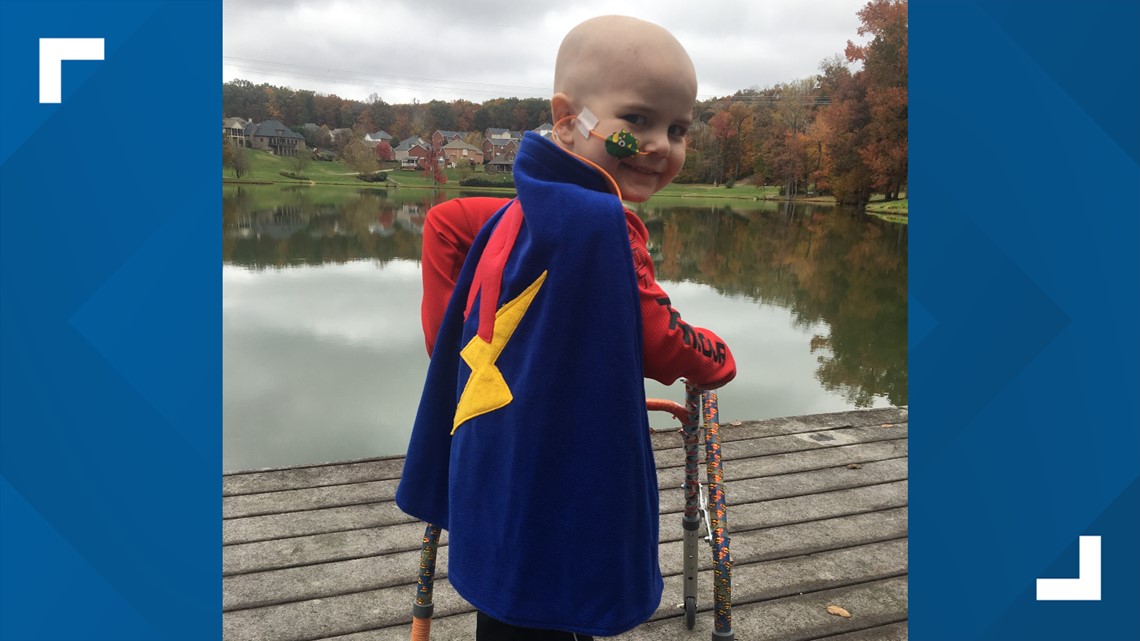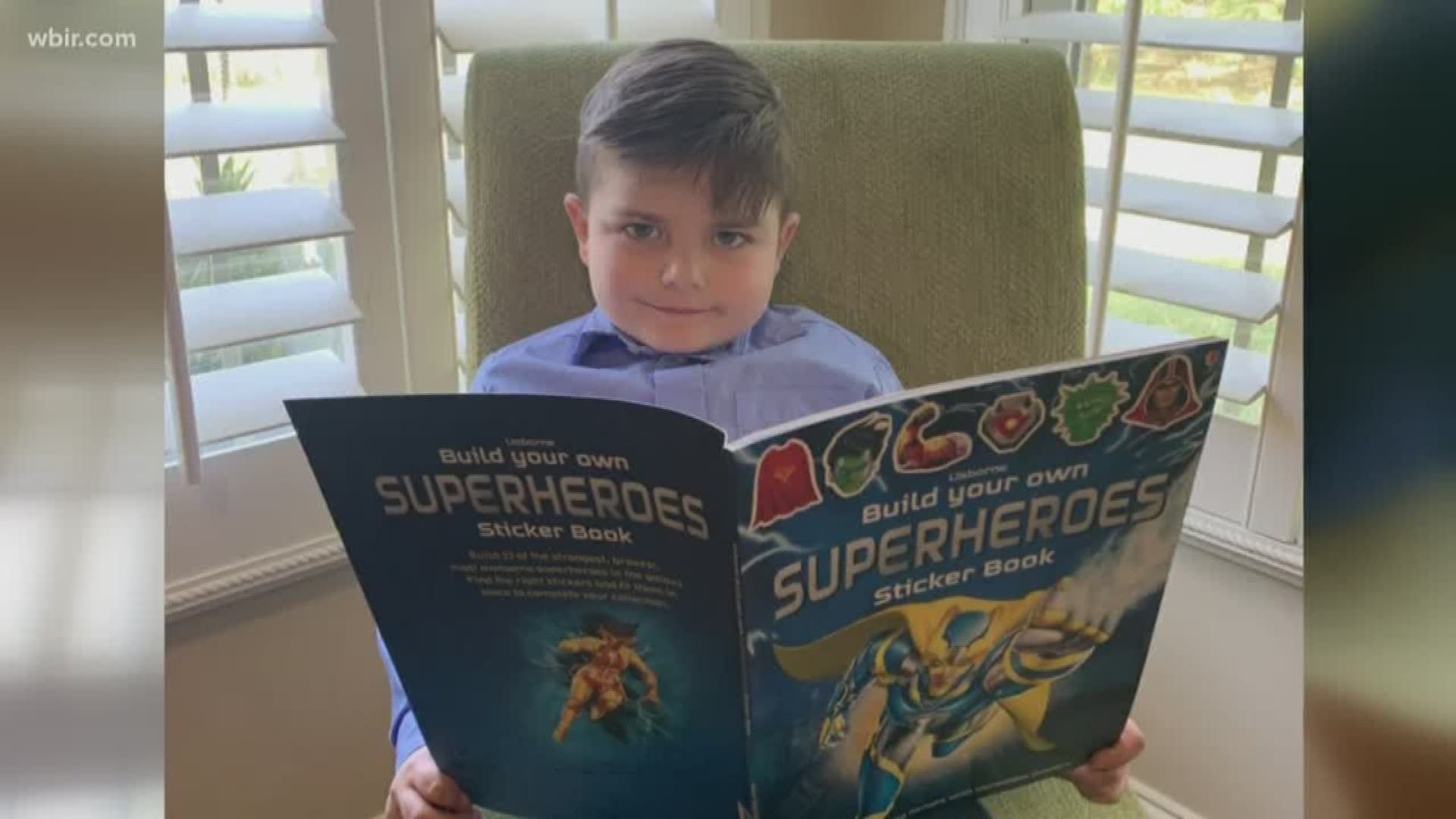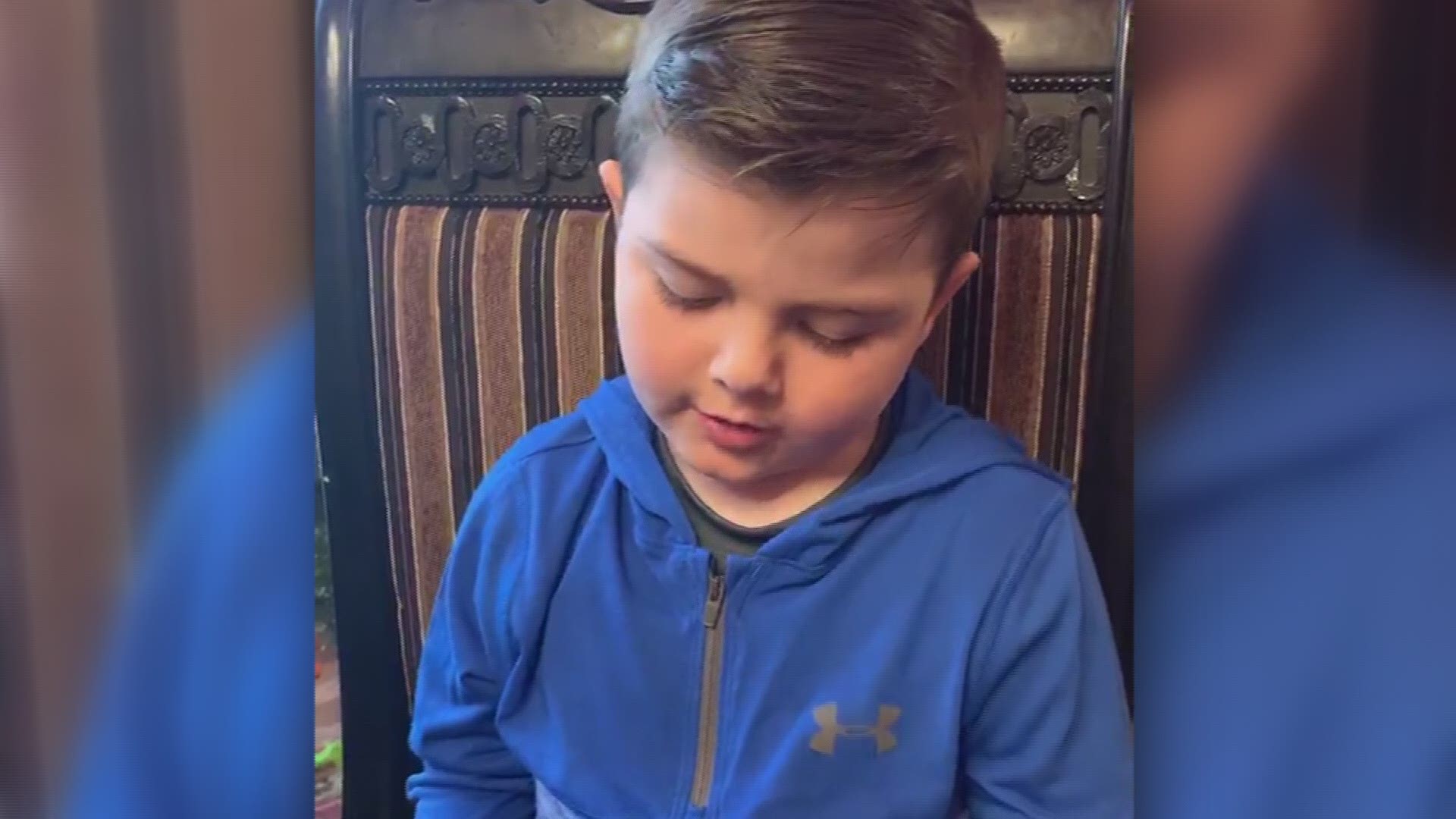POWELL, Tenn. — When five-year-old Noah Sileno was diagnosed with leukemia, his family quickly became isolation professionals.
"We call it lock down," Martha Sileno said. "We never alarm the kids. We just tell them we're gonna stay home and make everybody stay safe and healthy."
Daily chemotherapy treatments weakened Noah's ability to fight off infections, so the Silenos choose to stay home more often. As concerns grow over the spread of COVID-19, she's asking others to do the same.
"It's not just about us, it's about everybody," Martha said. "Even if you feel you and your family aren't at a higher risk to catch this, there's someone like my son Noah who has immunosuppression because of the chemo that he's on daily."
If the weather is nice, her boys like to jump on their trampoline, play on the swing set, draw with chalk and blow bubbles. Sometimes they'll move into the garage or living room if it's raining or cold.
"They love to do educational games, puzzles, watch television and just run and play with each other," Martha said. "We just try to make it fun."
Martha said she has been explaining what's going on with the coronavirus to her boys.
"I let them ask the questions and then I just answer whatever feels appropriate for them," she said. "It's just something to take seriously, but nothing to panic over."
In a video Martha shared with 10News, Noah tells her his "immune system isn't really strong" and that other people should stay home because "coronavirus can spread everywhere from people who have it."
Across the nation, government leaders are closing schools, casinos, dine-in restaurants and gyms to slow the spread of COVID-19.
The Centers for Disease Control issued a recommendation that organizers cancel any events with 50 or more guests in the next eight weeks.
The hope is that the disease can't spread if everybody stays home.


RELATED: Coronavirus live blog: Vaccine trial starts Monday; CDC recommends no events with 50 or more
"If you can stay home, that's what's best for you and your family," Martha said. "We're going to have less people getting sick, less people needing hospital stays."
Plus, for families with loved ones in the "high-risk" category, it helps put their minds at ease.
"For someone like Noah, this could be a big concern for us because he is immunosuppressed," she said. "But if we make good decisions, I think we'll all be fine through this."


